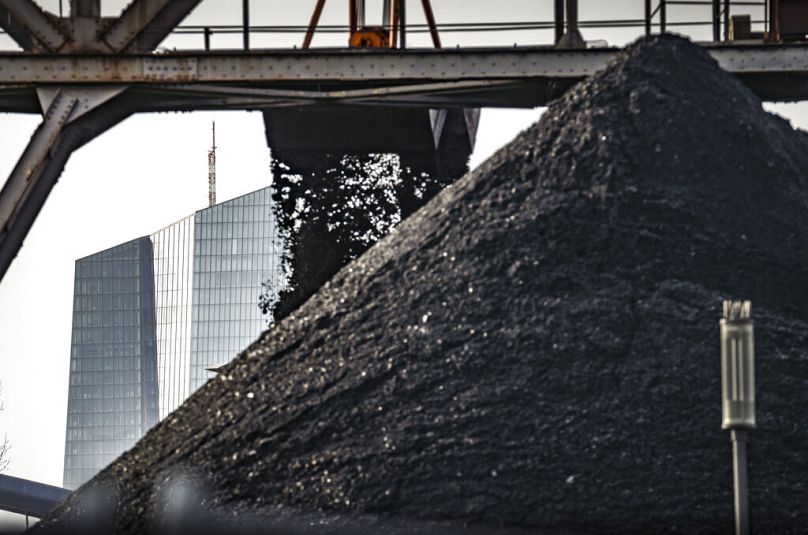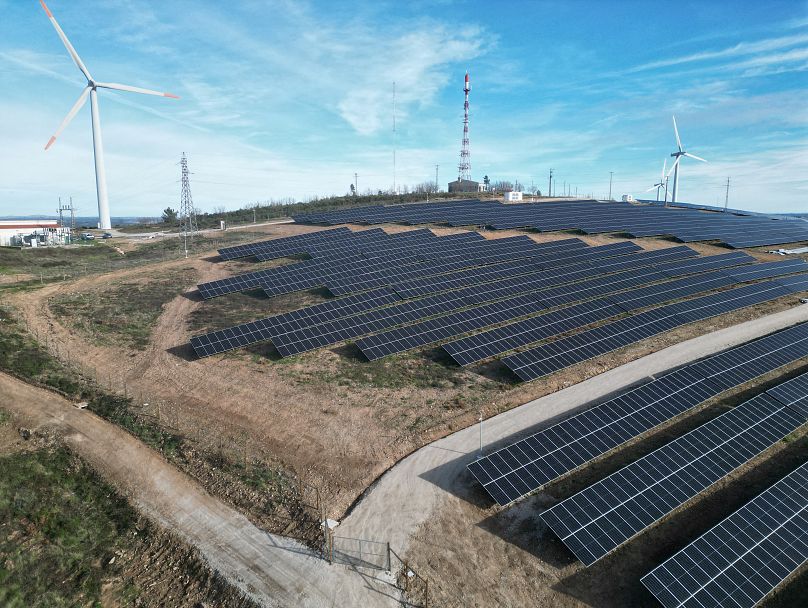Fossil fuels generated just 33% of the EU’s electricity in the first six months of this year.
Energy generated by fossil fuels in the EU hit a record low in the first half of 2023, a new report has shown.
 ADVERTISEMENT
ADVERTISEMENT
 ADVERTISEMENT
ADVERTISEMENT
In the first half of 2023, the 27 member states burned 17 per cent less fossil fuels for electricity than during the same period in 2022.
The study from clean energy think tank Ember found that between January and June, fossil fuels generated just 33 per cent of electricity - their lowest-ever share of the EU’s power mix.
“The decline in fossil fuels is a sign of the times,” says Ember analyst and author of the report Matt Ewen.
“Coal and gas are too expensive, too risky, and the EU is cutting them out.”
Why has fossil fuel generation fallen in the EU?
This drop in fossil fuel power was mainly driven by a fall in the demand for electricity, according to Ember.
Following Russia's invasion of Ukraine, the EU introduced a number of measures to cut demand after gas prices soared. A mild winter also saw energy use fall by 5 per cent in the first half of 2023.
Though this increase in energy efficiency may have driven a collapse in fossil fuel use, Ember says it is “not sustainable or desirable”.
Wind and solar also grew across the bloc, contributing to the decline. But the think tank says the growth of clean power needs to speed up if it is going to replace fossil fuels.
The report highlights that demand for energy will rise as the bloc pushes to electrify all sectors. This increase caused by initiatives such as increased electric car use must be covered by renewables rather than fossil fuels if the EU is to meet its targets for decarbonisation.
Which EU countries saw the biggest drop in fossil fuel power?
The collapse of fossil fuels was Europe-wide with power generation falling by at least 20 per cent in 11 countries when compared to 2022.
Five member states - Portugal, Austria, Bulgaria, Estonia and Finland - saw a more than 30 per cent drop in fossil fuel power.
And, from January to June this year, fossil fuel power generation was at its lowest on record for fourteen EU countries.
During the summer months, some countries went for significant periods without using fuels that have traditionally been the bedrock of their power systems, according to Ember.
The Netherlands, for example, only used coal for five days and went a record 17 consecutive days with no coal use in June.
Which fossil fuels have seen the biggest decline?
Coal power has tumbled the furthest in the EU. Power generation from this fossil fuel fell by 23 per cent in the first three months of 2023.
Despite concerns that Russia’s invasion of Ukraine may cause a ‘coal comeback’ last winter, this didn’t materialise. Coal amounted to less than 10 per cent of the EU’s energy generation for the first time ever this May.
Gas power also declined by 13 per cent and Russian gas pipeline imports were slashed by 75 per cent. Ember says that the EU found alternative sources of gas and replenished its stores, causing prices to fall. This also contributed to the collapse of coal power.
Is clean energy growing fast enough in the EU?
Solar power continues to grow in the EU, generating 13 per cent more electricity in the first six months of the year than it did during the same period in 2022.
Overall, the rapid expansion of renewable ambitions has seen the bloc continue to break records. The first half of the year was no exception with wind and solar accounting for 30 per cent of energy generation for the first time in May and July.
Individual countries have seen record levels of renewables too, with Greece and Romania passing 50 per cent of generation while Denmark and Portugal both broke 75 per cent. In Portugal, this was primarily down to wind and solar which made up half of all power generation in both April and May.
But, Ewen says, we need to see clean power replacing fossil fuels even faster than they are now.
“A massive push, especially on solar and wind, is urgently needed to underpin a resilient economy across Europe.”
Ember’s report calls on governments to increase the speed at which they are building and installing solar panels and wind turbines. It also says improvements to electricity grids and battery storage are “urgently” needed.
The think tank highlights the need to streamline the processes involved in getting permits for building clean energy infrastructure.













